Review of John & Yoko: Give Peace a Song
Introduction
On June 1, 1969, in Room 1742 of Montreal`s Queen Elizabeth Hotel, it was the final day of John Lennon and Yoko Ono`s `Bed-In for Peace`. They gathered dozens of people together to record a song penned by Lennon for the occasion - `Give Peace A Chance`. And since that time we`ve all heard the song at least a thousand times each. Well, that`s what it feels like. And who would like to argue with the sentiment? If only life were as simple as it all seemed from behind Lennon`s circular rose-tinted spectacles. Imagine what the world would be like.or is that another song?
Canadian documentary Directors Paul McGrath and Alan Lysaght managed to track down most of the participants of this be-in and managed to interview some 25 of them for this film. In addition to this, much of the historic archive footage here will never have been seen by the general public. A CBC film crew were in attendance, filming away for the full 8 days of this pre `Big Brother` slice of reality television and some previously unaired bits are included here.
You also get quite a number of Gerry Deiter`s photographs, culled from his 8 days at the royal bedside. As a permanent fixture at the event, Gerry`s interviews are amongst the most interesting. He recounts the meetings between Lennon and Timothy Leary, as well as with anti-war comic Tom Smothers.
What is remarkable about the whole thing is how cooperative the Canadian government and the Montreal council were in terms of staging the event. It would certainly never have happened in an America where the peace symbol was often pre-fixed with the caption `Footprint of an American Chicken`.
Of course, the ultimate fan highlight of the film will be the final recording of the song in question, on the final day of the bed-in. It`s all captured here in glorious black and white 16mm news footage. Lennon posted the lyrics to the song on the hotel suite`s walls to allow all the attendees to sing spontaneously. Incredibly, the song (warts and all) was released shortly afterwards and did great business in the US.
So despite a great deal of verbiage in this film from Lennon and his cohorts, as far as I could tell, all he was really saying was `Give Peace a Chance`.
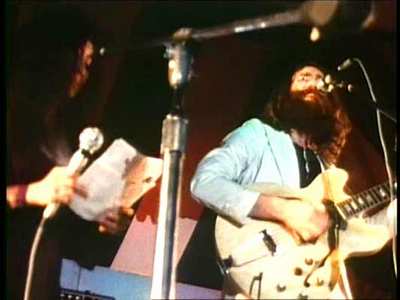
Video
Most the archive material is monochrome, and often fairly rough video broadcasts. New interview are nicely shot on Digital video.

Audio
Naturally audio is variable throughout, though never so bad that you`ll need to strain to hear.
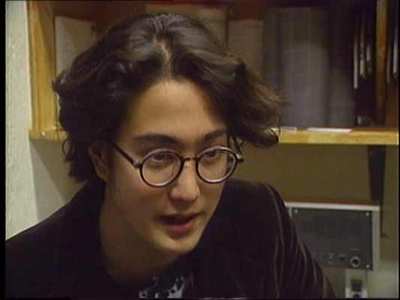
Features
In common with many documentary releases, the supplementary material is generally that which didn`t make the final programme cut in full. As a result, you get some complete television interviews with John and Yoko (on Canadian TV), the full Press conference and extended interviews with Andre Perry, Petula Clark, Tom Smothers and Judy Steinberg.
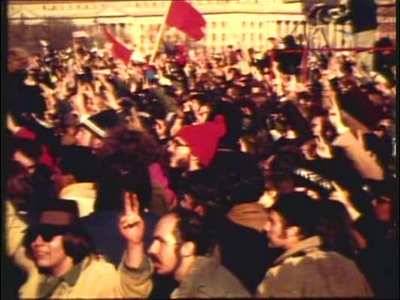
Conclusion
DVD`s like this will represent pure gold-dust to some (avid Lennon fans), yet will leave others, like myself, slightly bemused as to why anyone would want to add a relatively straight-forward documentary like this their collection. Unlike most rockumentaries, it has very little music in it, focussing instead on the political statement made by Lennon and Ono during their protest sleep-in.
It`s certainly a nicely made piece, gathering together the best of available archive material, as well as tracking down many of those who participated in what was essentially a `Big Brother` like media circus, and getting their reflections and recollections on the event.
Interestingly, despite the constant stream of irritating visitors and journalists, Lennon and Ono seemed to retain good humour throughout, patiently replying to even the most inane questions.
Generally though, in the cold light of a new Millennia, there is something awkward about Lennon`s self-proclaimed importance and the simplicity of his sentiment. That his heart was in the right place is without question, and it could be argued that the seriousness with which the media took the protest, and the subsequent publicity created a template for wealthy musicians to protest publicly about poverty to this day. And that`s got to be a good thing…hasn`t it?
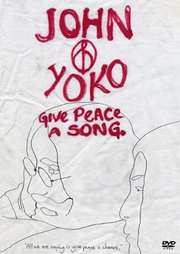

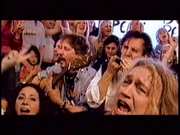


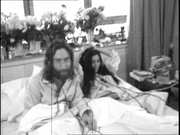

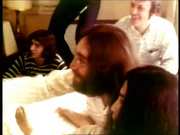
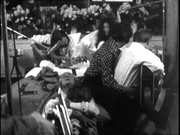

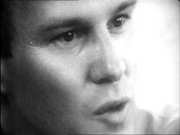
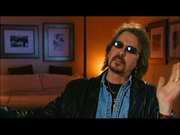
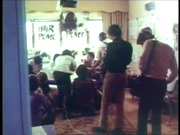

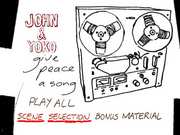



























Your Opinions and Comments
Be the first to post a comment!